You searched for: Jehovah's Witnesses
<< Previous | Displaying results 41-50 of 92 for "Jehovah's Witnesses" | Next >>
-
Simone Arnold
ID CardSimone was born in the Alsatian village of Husseren-Wesserling. In 1933 when she was three, her parents moved to the nearby city of Mulhouse. There, her father worked in a printing factory. Her parents were Jehovah's Witnesses and instilled in her the teachings of the faith. Above all, she was taught the importance of placing obedience to God before allegiance to any earthly authority. 1933-39: Simone grew up in a home full of love. Her parents would read the Bible to her. Their life included music, art,…
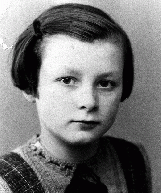
-
Franz Wohlfahrt
ID CardThe eldest of six children born to Catholic parents, Franz was raised in a village in the part of Austria known as Carinthia. His father was a farmer and quarryman. Disillusioned with Catholicism, his parents became Jehovah's Witnesses during Franz's childhood and raised their children in their new faith. As a teenager, Franz was interested in painting and skiing. 1933-39: Franz was apprenticed to be a house painter and decorator. After Nazi Germany annexed Austria in 1938, like other Jehovah's…
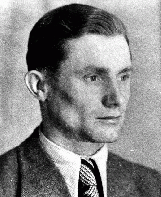
-
Ernst Reiter
ID CardErnst was an only child born to atheist parents in southern Austria during the middle of World War I. Raised in Austria's second largest city, he loved the outdoors, especially skiing in the Alps. In the early 1930s Ernst became a Jehovah's Witness. Although Austria was then in a deep economic depression, he was fortunate to find a job as a sales clerk in a grocery store. 1933-39: Austria's Catholic government was hostile towards Jehovah's Witnesses. When the Germans annexed Austria in March 1938, their…
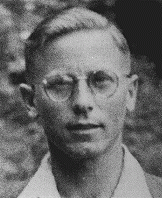
-
Max Liebster
ID CardMax was one of three children born to a Jewish family living in a small town in the Hessian part of Germany. His father was originally from Poland. After eight years of public education, Max completed three years of business school and learned to become a window decorator. In 1929 he found work in Viernheim, a village near Mannheim. 1933-39: Max worked for a clothing store where he was in charge of window dressing. Except for the weekends when there were Nazi marches, life was quiet in Viernheim. Right…
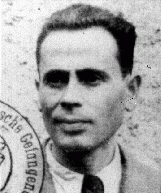
-
The Kusserow family
PhotoThe Kusserow family was active in their region distributing religious literature and teaching Bible study classes in their home. They were Jehovah's Witnesses. Their house was conveniently situated for fellow Jehovah's Witnesses along the tram route connecting the cities of Paderborn and Detmold. For the first three years after the Nazis came to power, the Kusserows endured moderate persecution by local Gestapo agents, who often came to search their home for religious materials. In 1936, Nazi police…
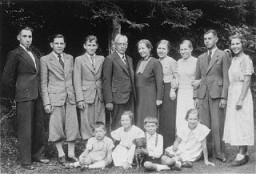
-
Magdalena Kusserow
ID CardOne of 11 children, Magdalena was raised as a Jehovah's Witness. When she was 7, her family moved to the small town of Bad Lippspringe. Her father was a retired postal official and her mother was a teacher. Their home was known as "The Golden Age" because it was the headquarters of the local Jehovah's Witness congregation. By age 8 Magdalena could recite many Bible verses by heart. 1933-39: The Kusserow's loyalty was to Jehovah, so the Nazis marked them as enemies. At 12 Magdalena joined her parents and…
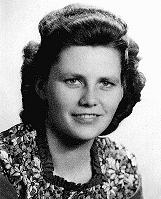
-
Adolphe Arnold
ID CardAdolphe was born to Catholic parents in Alsace when it was under German rule. He was orphaned at age 12, and was raised by his uncle who sent him to an art school in Mulhouse, where he specialized in design. He married in the village of Husseren-Wesserling in the southern part of Alsace, and in 1930 the couple had a baby daughter. In 1933 the Arnolds moved to the nearby city of Mulhouse. 1933-39: Adolphe worked in Mulhouse as an art consultant for one of France's biggest printing factories. When he wasn't…
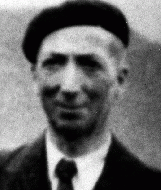
-
Robert Wagemann describes fleeing from a clinic where, his mother feared, he was to be put to death by euthanasia
Oral HistoryRobert and his family were Jehovah's Witnesses. The Nazis regarded Jehovah's Witnesses as enemies of the state for their refusal to take an oath of loyalty to Adolf Hitler, or to serve in the German army. Robert's family continued its religious activities despite Nazi persecution. Shortly before Robert's birth, his mother was imprisoned briefly for distributing religious materials. Robert's hip was injured during delivery, leaving him with a disability. When Robert was five years, he was ordered to report…
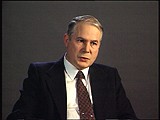
-
Bible found at liberation
ArtifactSoviet forces liberated the Sachsenhausen concentration camp in April 1945. In the camp, Soviet soldiers found this German edition of the Old and New Testaments on a dead prisoner, a Jehovah's Witness. The bible was sent to the prisoner's surviving family members.
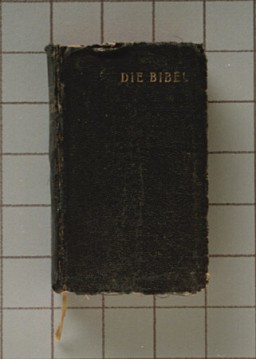
-
Stand Fast
SongErich Frost (1900–87), a musician and devout Jehovah's Witness, was active in the religious resistance to Hitler's authority. Caught smuggling pamphlets from Switzerland to Germany, he was imprisoned in the Sachsenhausen concentration camp near Berlin where he composed this song in 1942. Later deported to a labor camp at Alderney, Channel Islands, Frost survived the war and returned to Germany to serve the Watchtower Society. "Fest steht," reworked in English as "Forward, You Witnesses," is among the…
